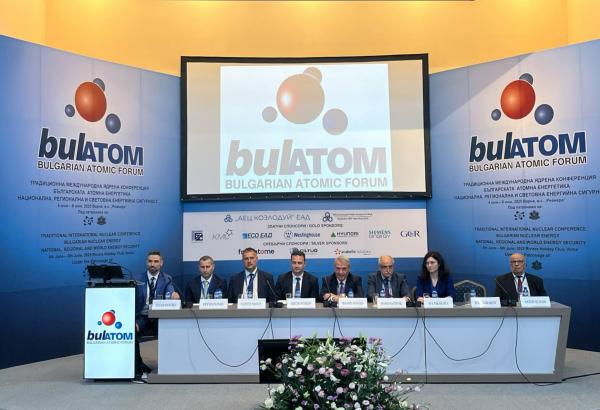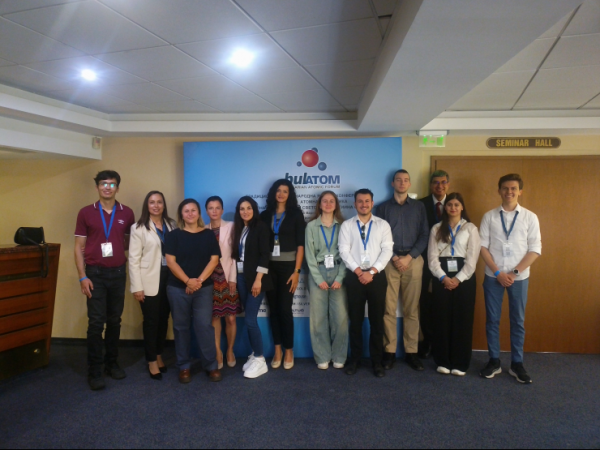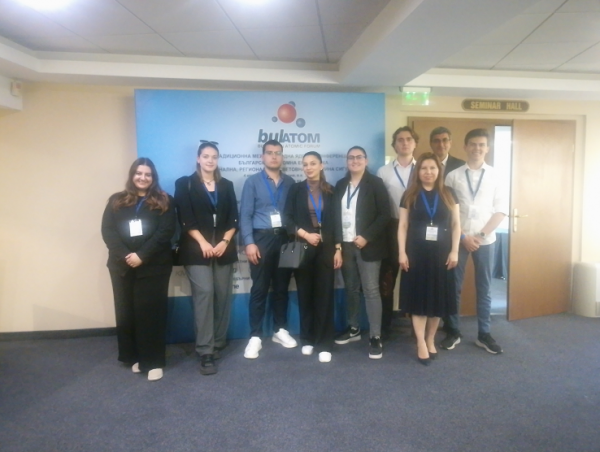09.06.2025
Between June 4–6, 2025, the International Nuclear Conference, organized by the Bulgarian Atomic Forum Association (BULATOM), took place. At the invitation and with the support of BULATOM, Sofia University “St. Kliment Ohridski” participated with an impressive delegation led by Assoc. Prof. Dr. Plamen Petkov from the Faculty of Physics.
The delegation included students enrolled in the “Nuclear Engineering and Nuclear Energy” program at the Faculty of Physics. A large part of the group was made up of master’s students enrolled in the new joint master’s program between the Faculty of Economics and Business Administration (FEBA) and the Faculty of Physics – “Nuclear Technologies, Management, and Innovations”, accredited by the International Atomic Energy Agency (IAEA). Students from the Faculty of Chemistry and Pharmacy, as well as from the Faculty of Philosophy (majoring in “European Integration and Diplomacy”), also joined the group.
In a video address at the opening of the conference, Bulgarian EU Commissioner Ekaterina Zaharieva – responsible for startups, scientific research, and innovation in the second Von der Leyen Commission – highlighted the joint master’s program “Nuclear Technologies, Management, and Innovations” at Sofia University’s FEBA and Faculty of Physics as an example of forward-looking educational policy. During her remarks, Commissioner Zaharieva emphasized the program as a positive example of innovation in nuclear education and scientific research.
The Chairman of the Nuclear Regulatory Agency (NRA), Mr. Tsanko Bachijski, also praised the joint master's program “Nuclear Technologies, Management, and Innovations” as a positive and forward-thinking initiative.
On the third day of the conference, in a panel discussion titled “Necessary Actions for the Sustainable Development of Human Resources in Nuclear Energy” Assoc. Prof. Plamen Petkov gave a presentation on the topic “Challenges Facing Higher Education in Securing Qualified Personnel for the Nuclear Sector’”. His presentation reflected the academic perspective on challenges related to higher and secondary nuclear education.






